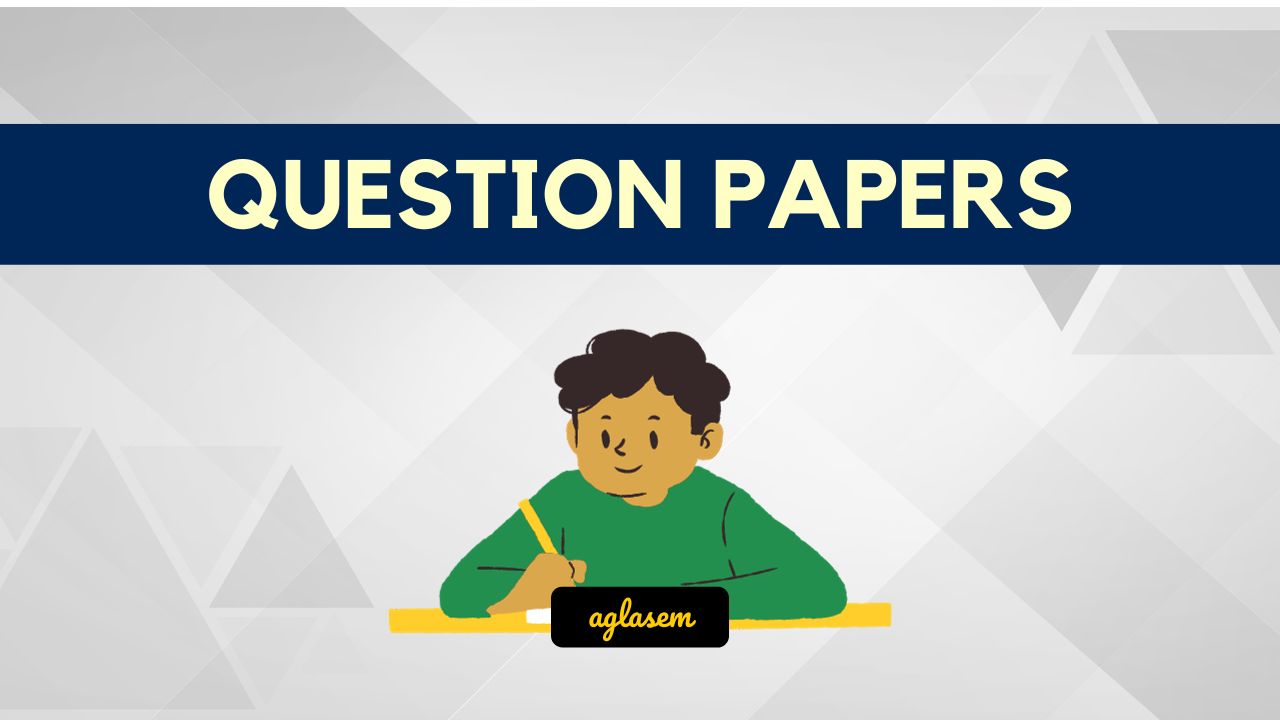NCERT Solutions for Class 12 Psychology Chapter 4 Psychological Disorders has been published by Aglasem. You can now download the Class 12 Psychology Ch 4 Questions and Answers PDF here. This NCERT Solutions for Class 12 Psychology contains answers of all questions asked in Chapter 4 in textbook, Psychology. Therefore you can refer it to solve Psychological Disorders exercise questions and learn more about the topic.
NCERT Solutions for Class 12 Psychology Chapter 4 Psychological Disorders
Class – Class 12
Subject – Psychology
Chapter – Ch 4
Chapter Name – Psychological Disorders
Book – Psychology
Study Material – NCERT Solutions
NCERT Solutions for Class 12 Psychology Chapter 4 PDF
While you can read NCERT Solutions for Class 12 Psychology Ch 4 for all exercises here on aglasem. You can also download this NCERT Solutions PDF to refer ncer question answer at anytime when you study Psychological Disorders. Here it is.
NCERT Solutions for Class 12 Psychology Chapter 4 PDF Download Link – Click Here to Download Solutions PDF
How to download NCERT Solutions for Class 12 Psychology Chapter 4 PDF?
You can download the complete NCERT solutions for chapter 4 of this NCERT Book i.e. Psychology with following steps.
- First search NCERT Solutions for Class 12 Psychology Ch 4 PDF aglasem and come to this page.
- Now you will see the exercise questions answers of Psychological Disorders and download pdf link on it.
- Click the Download PDF link to obtain the Psychological Disorders questions with answers document.
NCERT Solutions for Class 12 Psychology
There are more chapters to study besides Psychological Disorders in this subject. So here are NCERT solutions for all topics of Psychology taught in 12th class here at aglasem.
- Chapter 1 Variations in Psychological Attributes
- Chapter 2 Self and Personality
- Chapter 3 Meeting Life Challenges
- Chapter 4 Psychological Disorders
- Chapter 5 Therapeutic Approaches
- Chapter 6 Attitude and Social Cognition
- Chapter 7 Social Influence and Group Processes
NCERT Solutions for Class 12
Just like you got Psychology Ch 4 solutions here. You can see exercise questions answers of other subjects and their topics too on aglasem. Here are NCERT solutions for all subjects of 12th standard NCERT books.
- NCERT Solutions for Class 12 Accountancy
- NCERT Solutions for Class 12 Biology
- NCERT Solutions for Class 12 Business Studies
- NCERT Solutions for Class 12 Chemistry
- NCERT Solutions for Class 12 Economics
- NCERT Solutions for Class 12 English
- NCERT Solutions for Class 12 Geography
- NCERT Solutions for Class 12 Hindi
- NCERT Solutions for Class 12 History
- NCERT Solutions for Class 12 Maths
- NCERT Solutions for Class 12 Physics
- NCERT Solutions for Class 12 Political Science
- NCERT Solutions for Class 12 Psychology
- NCERT Solutions for Class 12 Sociology
NCERT Solutions for Class 12 Psychology Chapter 4 – An Overview
The key highlights of this study material are as follows.
| Aspects | Details |
|---|---|
| Class | Class 12 |
| Subject | Psychology |
| Chapter Number | Ch 4 |
| Chapter Name | Psychological Disorders |
| Book Name | Psychology |
| Book By | NCERT (National Council of Educational Research and Training) |
| Educational Resource Here | NCERT Solutions of Class 12 Psychology Ch 4 for All Exercise |
| More Questions Answers of This Subject | NCERT Solutions for Class 12 Psychology |
| Download Book Chapter PDF | NCERT Book Class 12 Psychology Chapter 4 |
| All Questions Answers For This Class | NCERT Solutions for Class 12 |
| Complete Solutions | NCERT Solutions |
If you have any queries on NCERT Solutions for Class 12 Psychology Chapter 4 Psychological Disorders, then please ask in comments below.
To get study material, exam alerts and news, join our Whatsapp Channel.







